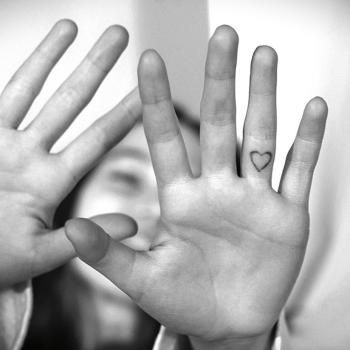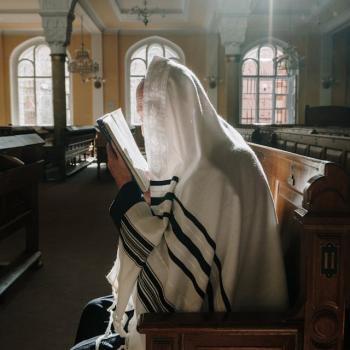During the seven-day period, mourners refrain from doing anything to focus on their own personal appearance, including showering, wearing nice clothes, looking in mirrors (many people cover them), or having intimate relations. It is customary for mourners to sit on low chairs or stools, symbolizing their low point in grief. These traditions are meant to disrupt life and show self-sacrifice.
The community comes to visit and others prepare meals so the mourners don't have to host. For the community, it is an act of kindness to pay a home visit. People often don't know what to say the first time they greet someone who has lost a loved one. Often the best thing is to say nothing or to speak with a hug or holding a hand. Saying "I am here for you" is also a great statement. Jewish customs also eases this since the tradition states that a mourner doesn't need to greet the guests unless he or she chooses to initiate. Family mourners can, in fact, completely ignore their visitors, which is the antithesis of what any host would do naturally.
Shiva is ideally in the home of the deceased as people may feel the presence of the person who passed away is strongest there. And it should be an occasion of dignity where the talk is centered on the deceased, remembering together with fondness many life events. There is always a meal that is provided by friends and neighbors as a way to symbolize the continuity of life. Before the meal, all mourners wash their hands to purify and symbolically wash away their grief.
Comforting a mourner doesn't mean distracting them; in fact, it's just the opposite. Some families have even posted a notice on their door with tips on how to act. This gives visitors some guidance and creates the atmosphere the family most desires. When leaving a shiva house, a good option is to say, "you should have no more stress" or "you should have only celebrations" or even "I wish you a long life."
Many people today don't want to sit shiva for the full seven days; some shorten it to three or even one day. But shiva was created to allow for proper grieving; it's supposed to be emotional and physically draining. People who shorten shiva are often appalled that the rest of the world expects them to return to regular life. It is a true mitzvah to help others properly grieve.
Stages of Mourning
After the seven days of shiva, there is a longer period where mourners do not have to attend any joyous events or parties unless necessary to avoid putting on a false face of happiness. This period includes various transitional stages:
- Shloshim (Thirty Days) During this time, mourners are not required to attend any celebrations and will begin their slow re-entry into the world of the living. They can honor the deceased by doing a good deed in their name. A popular custom is to gather a group to study Torah together or to participate in an activity that would have been important to the deceased.
- Shneim Asar Chodesh (Twelve Months) Anyone mourning a parent is encouraged to observe a twelve-month period counted from the day of death. This allows the children a committed time to honor their parents and to give full gratitude for what they have done for their lives. Their lifetime of giving is now repaid with a dedicated thank-you in their death. Children also take notice that now they are their legacy; the parents have passed on their connection to the next generation.
Mourners will continue to recite the mourner's Kaddish as part of synagogue services. And, there are still some restrictions on celebrations. - Matzevah (Monument) and Yahrtzeit (Time of Year)/Nachala (Legacy) The unveiling of the headstone happens at twelve months and while there is no religious obligation to have a ceremony, it has become customary for many people to mark the first anniversary. It is also traditional for Jewish families to remember their loved one each year on the anniversary of their death by lighting a candle in their honor, making a donation in their name, and attending services to hear their name read during Kaddish prayers.
- Yiskor (Remembrance) Honoring our loved ones continues in the Jewish tradition every year at the holiday of Yom Kippur. We stop to remember, to realize we are here because of those who came before, and to make a connection. Family members will again light a candle, which will burn for twenty-four hours, and people will make a donation in the honor and memory of the lost loved one.
Like the many stages of life, death is a rite of passage to be honored, and following the established practices within any religion can help us do that. I have been fortunate to only mourn the passing of a few people in my life, but I find ways to honor their memory often telling their stories or quoting them in articles.
In honor of my beloved rabbi, Sheryl Lewart (z"l), I will end with an excerpt from one of her eloquent poems. She wrote, "death is always personal . . . our personal losses do not isolate us, we share the miracle of being human comforted by the shared companionship of those around us. . . . When we open our hearts to our own personal memories, we are embraced by community, the community of those who have suffered and lost. One shared sigh, one common cry, one rhythm of release."




